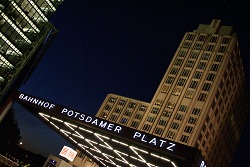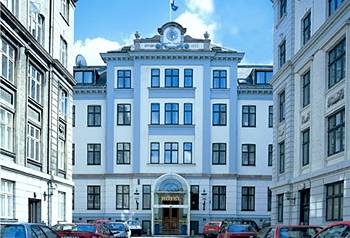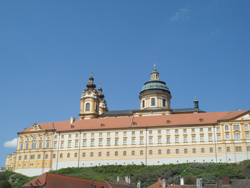A common mistake is to try to see too much on a short trip. "Major" cities such as Paris, Rome and London are easily worth an entire week, even on a first
trip. Even "minor" cities are worth an overnight stay. You'll
typically see more if you choose to explore one or two cities
thoroughly rather than if you try to see the whole of Europe
superficially.
As a rough rule of thumb, don't try to visit more than one
country for every week of your trip.
7. Should I go on my own or with a tour?
Most of Europe is very easy for an independent traveller to visit. The newsgroup is full of experienced travellers who will be happy to offer guidance if you need it. For most experienced travellers, part of the enjoyment is planning and deciding where to go, finding places to stay and eat, being able to change their plans whenever they want to do so, and often travelling without knowing for certain what to expect next.
A tour will relieve you of the responsibility of arranging your own accommodation, of deciding how much time to spend in one place, and up to a point will insulate you from language difficulties. But it will also insulate you from the pleasure of mixing with local people, and will make it difficult for you to make a spontaneous change of plans when you've just been really attracted by something you've seen.
A tour might also be worth considering if you have a particular cultural, historical or sporting interest and want to base your trip around that.
9. Do I need a visa to visit <some country>?
Whether you need a visa or not depends on your nationality. The only reliable source of visa information is a consulate of the country you're planning to visit. You'll find a list of foreign consulate offices in the USA at: http://www.state.gov/s/cpr/rls/fco/
In other countries, your ministry of external affairs or foreign relations will be able to tell you the locations of consulate offices.
There's a list of visa requirements for US citizens at: http://travel.state.gov/foreignentryreqs.html
Please note that this list is for US citizens only. It's still a good idea to check with the consulate of the country you're visiting: these lists are sometimes out of date.
10. What's the European Union (EU)?
The European Union, formerly known as the European Common
Market or the European Economic Community (EEC), started as
a "free trade" or "common market" agreement. Although trade
and economic policy are still its major focus, it now also
deals with social policy, external affairs, and other matters.
The countries in the European Union are: Austria, Belgium,
Cyprus, Czech Republic, Denmark, Estonia, Finland, France,
Germany, Greece, Hungary, Ireland, Italy, Latvia,
Lithuania, Luxembourg, Malta, the Netherlands, Poland, Portugal,
Slovakia, Slovenia, Spain, Sweden, and the United Kingdom.
For travellers, the main effect of the EU is that border
controls at airports and elsewhere often have two queues, one
for citizens of EU countries and one for citizens of other
countries. Choose the queue that's appropriate for you.
For more information on the EU, see http://europa.eu.int/ .
 Schloss Charlottenburg the largest Palace in the German capital Berlin
Schloss Charlottenburg the largest Palace in the German capital Berlin
 What not to miss in the German capital Berlin
What not to miss in the German capital Berlin
 Soldier poses for photographs in front of the Brandenburg Gate in Berlin
Soldier poses for photographs in front of the Brandenburg Gate in Berlin
 Soldier poses for photographs in front of the former Checkpoint Charlie in Berlin
Soldier poses for photographs in front of the former Checkpoint Charlie in Berlin
 Potsdamer Platz bahnhof and Ritz Carlton hotel in Berlin by night
Potsdamer Platz bahnhof and Ritz Carlton hotel in Berlin by night
 Schloss Sans Souci in Potsdam near Berlin
Schloss Sans Souci in Potsdam near Berlin
 Recommended hotels in Prague, Stockholm and Copenhagen
Recommended hotels in Prague, Stockholm and Copenhagen
 Notes from our day visiting the Benedictine Monastry in Melk
Notes from our day visiting the Benedictine Monastry in Melk